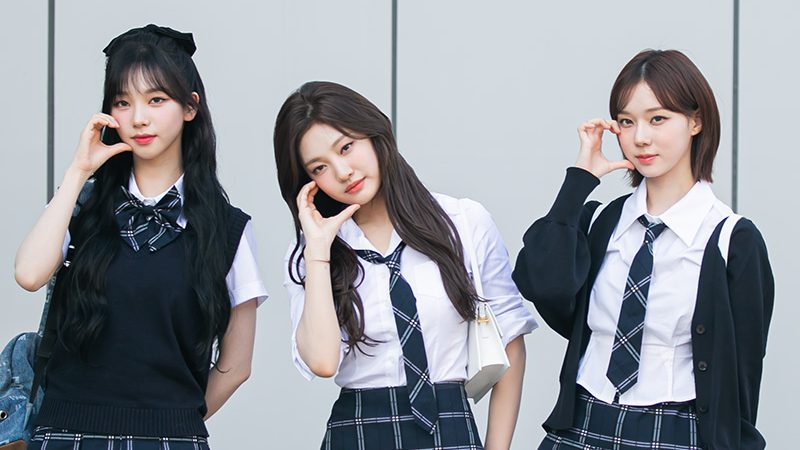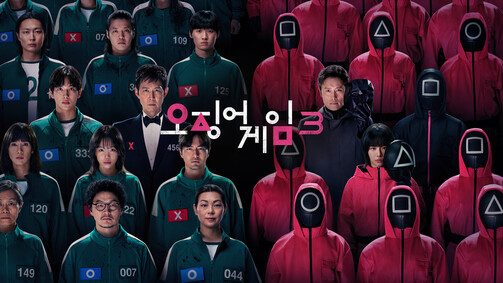Differences Between Korean and Japanese School Uniform Cultures
There are many Japanese people who admire Korean school uniforms, inspired by K-dramas or K-pop idols.
But what is the real school uniform culture in Korea, and how is it different from Japan’s?

This time, we’ll thoroughly compare Korean and Japanese school uniform cultures through five key points.
Both countries value their school uniform culture, but surprisingly, there are quite a few differences!
1. Differences in Uniform Design
In Japan, sailor-style and blazer-type uniforms are both common, but in Korea, the blazer style overwhelmingly dominates.
Korean school uniforms are characterized by:
- A tight silhouette
- Mini skirts for female students
- Slim ties or ribbons
These features give them a stylish, K-pop idol–like look.
In contrast, Japanese uniforms:
- Vary by region and school, showing unique local styles
- Emphasize cuteness, such as sailor collars and checkered skirts
- Change with the season (summer/winter uniforms)
Thus, Japan’s uniforms retain a stronger sense of tradition.
2. Attachment to Uniforms and Brand Preference
Korean high school students are often very particular about their uniforms, and several famous school uniform brands exist.
Notable examples include IVY Club and Elite, both of which often feature celebrities as models.
In recent years, uniform rental shops have also become popular for graduation ceremonies or special events, where students rent stylish versions of their uniforms.
In Japan, however, uniform styles are determined by each school, and uniforms are regarded less as a “brand” and more as a symbol of school tradition.
3. Differences in the Period of Wearing Uniforms
In Japan, students often wear uniforms from elementary school through high school, and sometimes even in attached university schools.
In Korea, however, only middle and high school students wear uniforms—elementary schools typically do not have them.
Interestingly, in Korea, there is a popular “school uniform tourism” culture, where people enjoy wearing uniforms even after graduation, such as for “uniform dates” or photo shoots at tourist spots.
In Japan, students may wear uniforms for school trips, but it’s rare to rent and wear them after graduation.
4. Connection Between Uniform Culture and Social Media
In Korea, hashtags like #교복코디 (#UniformOutfit) and #교복커플 (#UniformCouple) are extremely popular on platforms such as Instagram and TikTok.
Common trends include:
- Taking uniform photos in cafés
- Renting uniforms for theme park dates
- Enjoying an “ideal student experience” through uniform rentals
This shows how uniforms have become a social media–friendly fashion culture among young Koreans.
In Japan, while students also post uniform photos online, the idea of “enjoying uniforms as fashion” is not as widespread as in Korea.
5. Social Image of School Uniforms
In Japan, school uniforms often symbolize discipline, cleanliness, and tradition, representing the image of a well-behaved student.
In Korea, while uniforms also have that association, there is an additional focus on:
- Style and appearance
- Customization (adjusting skirt length, adding accessories)
- Enjoying uniforms as a form of fashion
Thus, Korean uniform culture allows for a freer and more individual expression.
That said, in both countries, school rules can be strict, so the degree of freedom in how uniforms are worn varies greatly depending on the school.
Summary: Korean and Japanese School Uniform Cultures—Both Are Charming!
| Comparison Point | Korean School Uniform Culture | Japanese School Uniform Culture |
|---|---|---|
| Design | Blazer-focused, slim silhouette | Sailor & blazer styles, regional variation |
| Brand Orientation | Presence of popular uniform brands | Emphasis on school tradition |
| Wearing Period | Middle to high school only | Elementary through high school |
| SNS Culture | Uniform rentals, “Instagram aesthetic” | Mainly daily photo sharing |
| Social Image | Expression of style and individuality | Focus on discipline and tradition |
Korea and Japan share many similarities in their school uniform cultures, yet they have evolved in different directions.
In both countries, uniforms are not just clothing but symbols of student life and cultural identity, cherished as part of growing up.

When traveling in Korea, trying a school uniform rental experience can be a fun and memorable activity.
You can also talk with Korean students about their uniforms to gain a deeper understanding of the cultural differences!
Table of Contents









